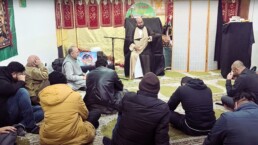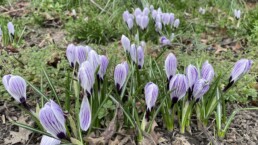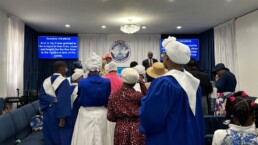Why Songs of Zainab Moved This Shia Congregation in Brooklyn to Tears
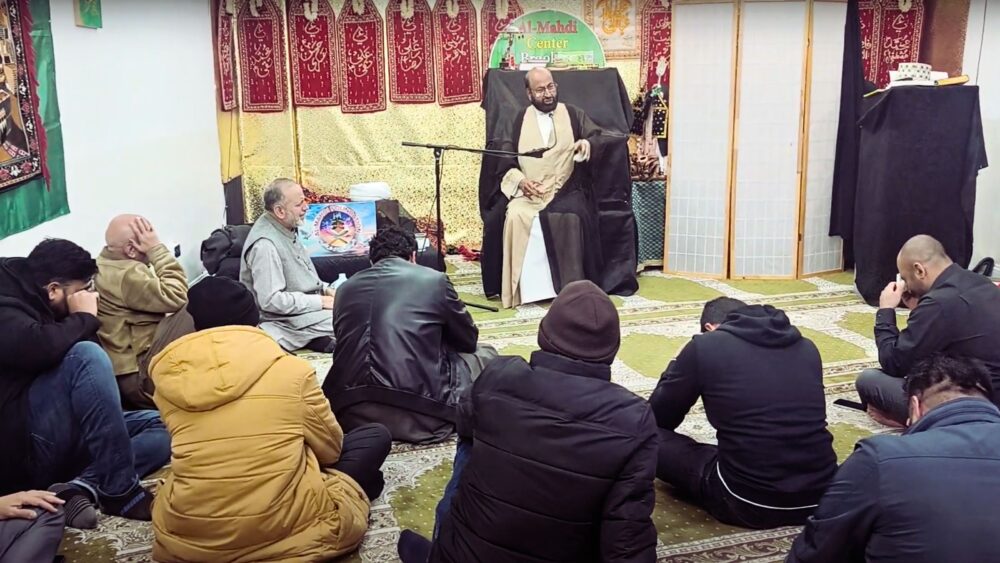
NEW YORK - A couple dozen grown men are seated on the floor, sobbing in unison.
It’s a rainy Sunday evening on Coney Island Avenue, in a Brooklyn neighborhood better known as Little Pakistan. A small crowd has gathered in the prayer hall of the Al-Mahdi Foundation’s masjid, a Shi’a mosque.
There are songs being sung, and poems recited. Each verse pays homage to Zainab bint Ali, the granddaughter of Prophet Muhammad.
The previous day, the 27th of January 2024, was also the 15th of Rajab 1445, as per the Hijri or Islamic calendar. It was the day that Zainab is said to have passed away, close to 14 centuries ago. The Shia congregation in Brooklyn is mourning Zainab by retelling stories of her suffering and bravery.
“Adab se kahiye, salaam Zainab (say it with respect, salutations to Zainab),” sings Rashid Zaidi, a worshiper at the mosque.
Prior to her death, Zainab had been taken captive by the forces of Yazid, the second chief of the Umayyad Caliphate. This was after the Battle of Karbala, in which Zainab’s brother Hussain and several of her relatives are said to have been killed by the forces of Yazid.
Zainab is remembered by the gathering for her resolve and resistance in the face of oppression. “Quran agar Hussain, tafsir hai Zainab (If Hussain is the Quran, then Zainab is its interpretation)", recites a worshiper.
Shi’a Muslims, who comprise a minority within Islam, are also a minority among the Muslim population in New York City. The majority of mosques in the city belong to the Sunnis. The holy day commemorating Zainab’s death, however, holds significance for Shi’a and not Sunni practitioners, and the Al-Mahdi masjid in Brooklyn is one of the few places in the city where such a commemorative event is being held.
As Zainab’s hardships in captivity are recounted, many of the members in the congregation cannot bear to look. They cup their faces in their hands in grief. An elderly man crinkles his tearful eyes and slaps his thighs. Next to him, 65-year-old Hasan Raza beats his chest lightly. He laments, “People slayed the Prophet’s family just for the lust of power. When we remember that, we cry.”
Syed Basit Naqvi, a 43-year-old cab driver, explains his outpouring of emotions during the commemoration, “Zainab’s captors had tried to humiliate her by walking her through the streets and snatching her hijab away from her. If I close my eyes, I feel like I'm looking at those things happening in front of me.” He adds, “You can feel it happening and you feel helpless.”
Channeling The Grief
“You relate to their grief, and the grief gives us a sense of belonging,” says Hussain Raza, a 36-year-old software developer from Pennsylvania, who attended the event in Brooklyn on Sunday. He adds, “Isn't that what everyone is looking for in the world - a sense of belonging?”
Raza continues, “When you listen, it goes in from one ear and then, I'm a software person so I'd say it goes into a loop, and then it goes to a different function in the body, your heart, your brain, and the emotion hits…and you tear up. It happens in milliseconds.”
Naqvi says, “The grief helps me - when you associate yourself with victims like them (Zainab and those alongside her), you tend to be more sympathetic with other people. The main purpose is so that you don't become the oppressors.”
He says it makes him want to help other people. “The grief softens your heart when somebody is in pain. Because when you're grieving people who have been killed like this, you cannot be cruel to anybody else.”
A young boy comes to remind Naqvi that they have to get going. It’s his nephew.
As Naqvi proceeds to leave the mosque, he remarks, “I don't feel angry on hearing the story. I feel that this thing happened in the past, but it shouldn't happen again. Never again.”
Goddesses of the Hearth: An Imbolc Ritual Where All are Welcome
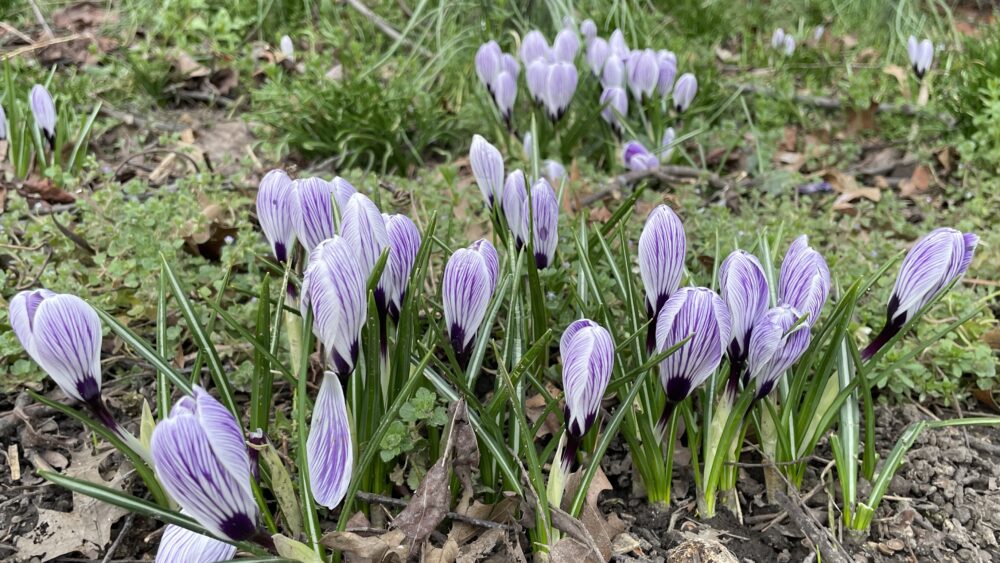
MOUNT SINAI, N.Y. - The weather outside is gray and chilly, but the local Druid community is preparing for the coming of spring. A group of eight people stand in a haphazard circle near the back wall of a metaphysical shop in this Long Island town.
The smell of sage incense fills the air. On one side of the circle sits a small, round table holding the essentials for this Celtic spring ritual called Imbolc. The sage is burning in a bowl on the table. It represents the fire that would usually be present for this ritual, if it wasn’t so cold outside.
The other items on the table are a carved wooden tree, a glass skull holding a candle, a tall, white candle and two bowls — one to receive offerings and the other, filled with an inch or two of water, representing a well. Beside the bowls, there are four glass jars holding offerings of cornmeal, bird seeds, oil and alcohol.
For each step of the ritual, a different person reads from a script and steps to the table, placing an offering in the bowl to welcome a new deity or group of spirits.
“Nature Spirits, be welcome among us!”
“Shining Ones, be welcome among us!”
“Ancestors, be welcome among us!”
These invitations culminate in the welcome of Brigid, the Celtic goddess of fire, hearth, home, and spring. Imbolc is a celebration for her. Many of her attributes were later grafted onto the Irish Catholic saint, St. Brigid, whose feast day is also celebrated on Feb. 1 to welcome spring.
Finally, there’s a pause.
Everyone in the circle is silent and still. An invitation has been given for anyone to make an offering to the deity or powers of their own home — even those of different pagan, or neo-pagan, beliefs.
Christopher Kwozko takes a few steps to the table. He selects the jar of bird seeds, unscrews the white cap and gently shakes the jar over the offering bowl, the seeds falling onto the previous gifts.
“Every time I give an offering, any offering is always given in love,” he said later.
Kwozko, a massage therapist, was raised Catholic but came to one form of neo-paganism — Hellenic polytheism — when he was in college. He said his devotion to Hellenic deities comes from his Greek heritage.
“I’m Hellenic, and not just religiously speaking, but [that] also encompasses the culture, the music, the food,” Kwozko said. “For me, polytheism is one part within my whole cultural background.”
For his offering during the Imbolc ritual, Kwozko is honoring Hestia, the Greek goddess of hearth, home and fire. He chose the bird seeds because they represent the coming of spring.
In the circle, he lifts the bowl to the sky, just for a second, before placing it back on the table. Then, he steps back to his spot and someone else steps forward to honor their own god.
“What was going through my head was this euphoria,” Kwozko said of his offering. “It was special, profound and heartfelt.”
When the ritual is over, the space returns to its original purpose — a metaphysical shop called Balance Mind, Body, & Soul. That’s when Kwozko explains that Brigid and Hestia are different deities for different cultures, despite their shared titles.
“She is the first and last who receives offerings,” Kwozko said of Hestia. “So anytime I do anything in the home, I do it in her honor.”
The Bride Price: A Teaching On Atonement At the Pentecostal Anointing Church of God
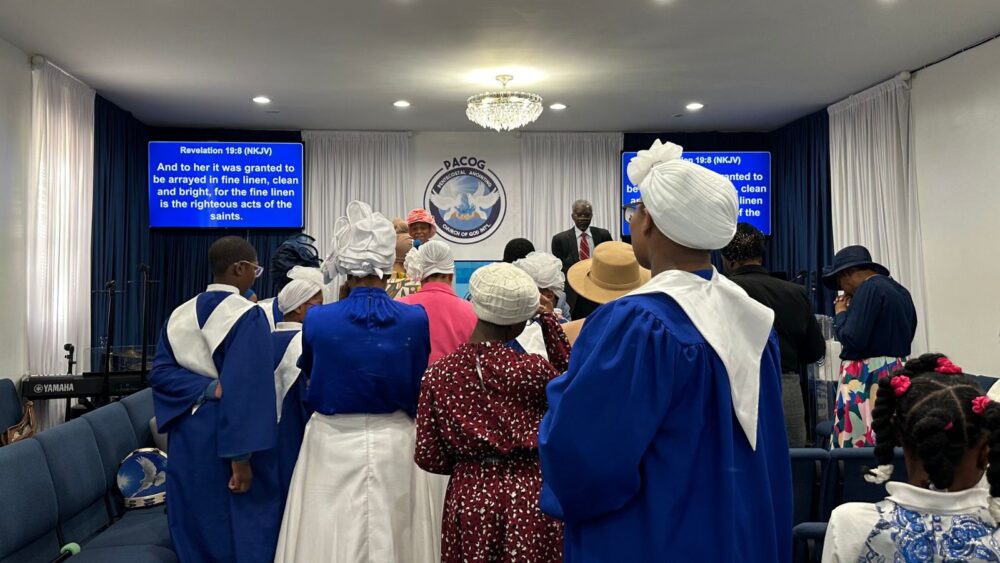
NEW YORK — The small sanctuary of the Pentecostal Anointing Church of God, located at 3112 Tilden Ave. in Brooklyn, was thunderous on Sunday with the sounds of no more than 30 worshipers clapping and shouting “hallelujah” as the congregational leader spoke.
All across the space, decorated in blue and white colors, Bibles were open. Children, who accounted for most of the small church community, pulled out composition notebooks to record the lesson God would teach them through the congregational leader, known to them as Mommy.
Moments before, at the beginning of Mommy’s teaching, the worshipers stood and read chapter 19 in the Book of Revelation aloud together.
“Revelation 19 is encouraging to us,” said Mommy. “The Lord is encouraging someone today.”
“Amen,” shouted the congregation in agreement.
In Nigerian Pentecostal tradition, church teachings are highly interactive, and a back and forth exchange between the preacher and the congregation is welcomed. At Pentecostal Anointing Church of God, it’s common for worshipers to burst into song multiple times throughout the teaching period.
Mommy re-read verse seven in Revelation 19 out loud to the crowd, “Let us rejoice and be glad and give him glory! For the wedding of the Lamb has come, and his bride has made herself ready.”
For Christians, the word “Lamb” is used throughout the Bible as a metaphor for Jesus Christ, and the word “bride” often represents the Church, or anyone who has put their faith in Jesus.
“American culture makes it very easy to get married,” Mommy said with a chuckle. “In Africa, where we are from, there is a thing called ‘bride price.’”
Mommy described a prominent tradition in West African tribal societies where the groom or groom’s family pays a sum of money to the bride or the bride’s family before the official wedding ceremony. She then spoke about the other things involved in addition to money, including yams, cakes, smoked fish and intricately designed outfits.
As Mommy spoke, her inflection emphasized her passion, ranging from a conversational tone to a holler. Members of the congregation laughed joyfully as they contemplated the difference in cultural traditions.
Then, Mommy’s facial expression grew serious as she drew a parallel between the bride price tradition to the atonement of Jesus Christ.
Christian doctrine teaches that it was Jesus who suffered the ultimate penalty in order to wipe clean the consequences of Sin for all mankind, allowing them to be reconciled to God.
“Did you see what Jesus did for us?” Mommy asked the congregation. “You don’t need to pay for marriage; you don’t need to pay for cake for marriage with God.”
Through giving his blood, Jesus himself paid for each individual to be his bride, said Mommy.
“If you have not put value to what Jesus did, please, I am encouraging you today,” said Mommy.
For the third time and final time, the congregation broke out into song. “Jesus paid it all. All to him I owe,” they sang exuberantly as Mommy’s teaching drew to a close.

